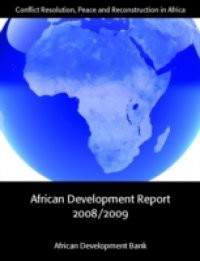The publication of the African Development Report 2008/2009 comes at a time when some prolonged civil conflicts in Africa have ended while some countries continue to experience violent conflict or the threat of its occurrence. The termination of some of the long-drawn-out conflicts offers hopes for lasting peace and security in Africa, a sine qua non for the continent to develop. But it also raises a number of challenges to ensure a successful post-conflicttransition. The countries concerned are not in a position to undertake such efforts on their own. Thus, external support is vital to post-conflict recovery. On the other hand, the persistence of conflict in some other countries warrants a continued enquiry into the nature and causes of conflict in Africa anda search for appropriate conflict-resolution strategies. Against this background, the Report investigates the nature, causes and consequences of conflict in Africa. It assesses conflict-resolution and peacebuilding strategies and then focuses on policies to aid the transition from conflict to peace and economic recovery. Finally, it highlights the African Development Bank's support to fragile states, which are mostly countries emerging from conflict. The Report identifies large knowledge gaps and a lack of consensus on the causes of conflict in Africa. It shows that the consequences of conflict often spread well beyond national borders, and that regional and international efforts are critical to conflict resolution. The Report emphasizes the need for strong national institutions to underpin the process of state building in general, and peacebuilding and economic recovery in particular. The Report contributes to the debate on effective strategies to prevent and end conflicts in Africa, and facilitate post-conflict recovery and reconstruction. It is a must-read for policymakers, practitioners and scholars, and indeed for all those with an in interest in African development.

